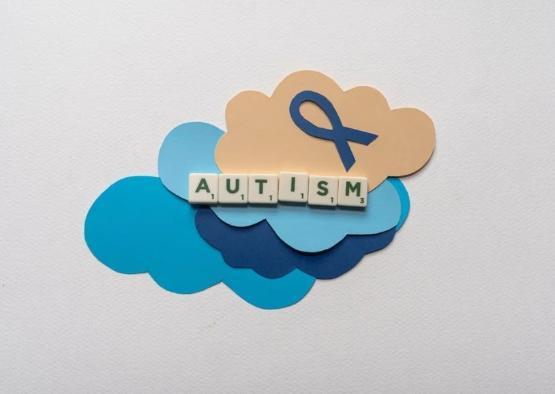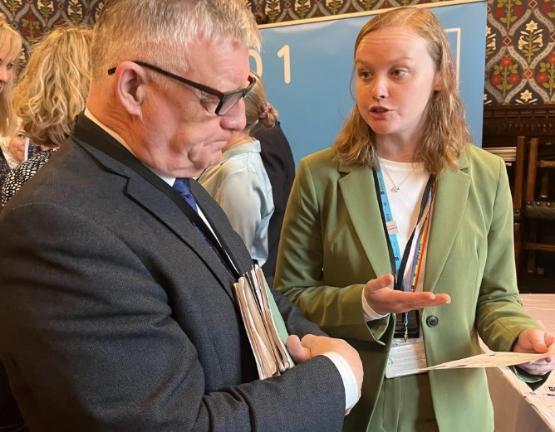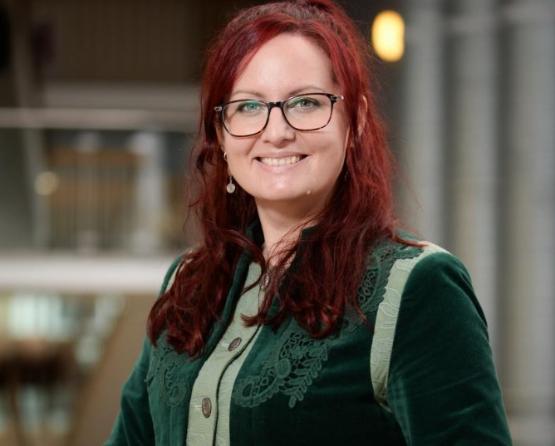Autistic children losing out, says report to MPs
A new report to MPs says our education system is failing to properly support autistic children and young people.

A new report to MPs says our education system is failing to properly support autistic children and young people.
The report, commissioned by the Child of the North Initiative in partnership with the Centre for Young Lives, was co-authored by a number of academics from the N8-plus research partnership, including several from the University of Bradford.
It is the first of 12 reports focussing on childhood inequalities produced in partnership with the Centre for Applied Educational Research (CAER), which works closely with the Department for Education.

Dr Lucy Eddy, Lecturer in Psychology at the University of Bradford, pictured above, who sits on the Executive Committee of CAER and who has previously briefed MPs on identifying and supporting motor skill difficulties among school children, said: “This report presents evidence-based recommendations that could benefit children across the country. There is an urgent need to identify children that would benefit from additional support, early, so interventions can be put in place, when they are most effective. Ultimately, by using tried and tested approaches to supporting children with Autism, we have the opportunity to reduce inequalities and improve life chances for the next generation."
Dr Eleanor Bryant, an Associate Professor in Psychology, pictured below, who coordinates the University of Bradford research within CAER: "This report is timely, and crucial for tackling ever-evolving challenges for children and young people with Autism. This is a call to action. We need to stop working in silos and bring together the health and education sectors to better support children."

The report says that since the pandemic, there has been a 306% increase in the number of children waiting for an autism assessment.
It also found:
-
Autistic children were twice as likely to be excluded from school
-
Only 26% of autistic children feel happy at school
-
Three in four parents said their autistic child’s school did not fully meet their needs
-
93% of autistic children did not receive an appointment within 13 weeks of referral
-
Autistic people have a lower life expectancy of up to 30 years, due in part to poor physical and mental health
The report, A country that works for all children and young people: An evidence-based plan for addressing the autism assessment and support crisis, also argues that planning and resourcing for diverse needs should be baked into the school system, rather than seeing both as an optional extra. This could include relaxing individual school uniform policies to support autistic pupils with sensory issues who can’t tolerate wearing a uniform, removing the sounding of a bell between classes to generate a calmer atmosphere, and a consistently structured school day with calm transitions between lessons and lunch time.
The research highlights the SUCCESS (Supporting Understanding of Children’s Communication, Emotional and Social Skills) project trialed in 10 Bradford primary schools which deployed multi-disciplinary teams within the school gates to conduct autism assessments for children identified as being at risk of undiagnosed autism (and other neurodevelopmental disorders).
The evidence showed that clinicians were able to combine their clinical observations with those of teachers, who observe the child working. The SUCCESS approach allowed more children to access autism services and thereby reduce the likelihood of missed appointments and the resultant costs. The evidence from the trial suggests this approach could provide major long-term savings and reduce waiting times for autism assessment and support.

What does the report recommend?
The report by the Child of the North initiative - led by the N8 Research Partnership of Northern universities and others - and former Children’s Commissioner Anne Longfield’s new Centre for Young Lives think tank, reveals a crisis in children’s autism assessment, warning that thousands of autistic children and young people are waiting months - or even years - for health and education support.
The report makes a number of recommendations, including more assessments to take place in nurseries and schools and more support for autistic children before diagnosis, and for new formal local partnerships between schools, health, voluntary services, and universities.
Other measures include:
-
A ‘needs-led’ approach instead of relying on a ‘diagnosis-led’ system, where early identification becomes the norm and faster effective support is offered without relying on a diagnosis.
-
Providing and extending access to mandatory Continuing Professional Development (CPD) courses for health, education, and social care professionals that improve understanding and awareness of autism (and related issues). Additional training should be co-produced by individuals with lived experience and delivered to professionals and integrated into undergraduate health and education professional training to improve the identification of autistic girls.
-
Creating formal partnerships at a local authority level comprising sector leaders (including schools, health, voluntary services, faith, universities, educational psychologists, and businesses) to oversee a prioritised governmental ward-level approach to addressing the autism crisis.
Anne Longfield, Executive Chair of the Centre for Young Lives, said: “The number of autistic children seeking support is at a record high and the number waiting for an assessment has rocketed since Covid. The autism assessment crisis is leaving thousands of children without the support they need and parents having to battle their way through a nightmare process that can take years to resolve.
“The pressure and stress this is putting on families and children can have terrible and damaging consequences for mental health and for children’s education chances. Autistic children with a referral who are waiting for an assessment are at significantly greater risk of exclusion from school, with all the further risks that can bring. If waiting times continue to increase, so can the risk of increased exclusion and poorer educational outcomes for autistic children.
“The evidence shows the need to move to a system of support that responds to the needs of autistic children, rather than waiting for diagnosis before any help appears. The education sector and health services should be working together, sharing data and information, and building local partnerships that can transform the support autistic children receive.
“Without urgent reform, we cannot hope to improve the life chances of the next generation. As this report highlights, change is possible – and it is happening in some schools and local areas already. What is needed now is the determination from the Government and others to make it happen everywhere.”
Dr Camilla Kingdom, President of the Royal College of Paediatrics and Child Health, said: "We hear from families over and over again about how distressing the current systems are for autistic children - from the incredibly lengthy waits many have to endure awaiting diagnosis, through to a support system which is patchy at best.
“I commend this report which has been written with significant contributions from children and families with lived experience. I am convinced that we need to move from detailed descriptions of our failing system, to action - and this report provides the evidence base to do just that."
What the parents say
As one parent seeking an assessment for her child told the report’s authors, trying to receive an assessment was “an absolute nightmare… our systems in health and our systems in education don't link and can't talk, and we can't transfer things over, and things had to be logged in one place and not another.”
Facts and figures
The report’s analysis reveals a system under unsustainable pressure.
-
In September 2023, there was a 27% rise in new autism referrals over the last year.
-
In July 2022, more than 125,000 people were waiting for an autism assessment by mental health services, an increase of 34% since the previous October. By July 2023, this number had risen to more than 143,000. Figures published in September 2023, show there were 157,809 patients with an open referral for suspected autism.
-
93% of children did not receive an appointment within 13 weeks of being referred.
-
The number of children yet to receive an appointment after 13 weeks has increased by 36% since Covid-19, and there has been a 21% increase in the last twelve months.
-
More than one in four parents have waited over three years to receive support for their child.
-
The evidence shows that children born to mothers without educational qualifications will receive an autism diagnosis two years later than their peers, and that issues around timely identification and support are exacerbated for girls, who are more likely to be misdiagnosed and diagnosed later than boys, or not at all.
-
Children and young people from ethnic minority backgrounds are experiencing lower rates of identification of autism and often experience more severe difficulties.
Find the report here: http://tinyurl.com/cotncfyl1
